Shows

Latest 100 | LSE Public lectures and events | VideoSkills in the age of AIContributor(s): Professor Mary O’Mahony, Professor Sir Christopher Pissarides | How can we shape engaging work environments that foster productivity and enable workers to flourish?
Using evidence from the Pissarides Report the event will highlight the importance of not only being skilled but also feeling capable of drawing on technological advancements in the workplace.Featured image (used in source code with watermark added): Photo by fauxels via Pexels: https://www.pexels.com/photo/photo-of-people-doing-handshakes-3183197/
2025-06-251h 30
All items | LSE Public lectures and events | All media typesSkills in the age of AIContributor(s): Professor Mary O’Mahony, Professor Sir Christopher Pissarides | How can we shape engaging work environments that foster productivity and enable workers to flourish?
Using evidence from the Pissarides Report the event will highlight the importance of not only being skilled but also feeling capable of drawing on technological advancements in the workplace.Featured image (used in source code with watermark added): Photo by fauxels via Pexels: https://www.pexels.com/photo/photo-of-people-doing-handshakes-3183197/
2025-06-251h 30
Latest 100 | LSE Public lectures and events | All media typesSkills in the age of AIContributor(s): Professor Mary O’Mahony, Professor Sir Christopher Pissarides | How can we shape engaging work environments that foster productivity and enable workers to flourish?
Using evidence from the Pissarides Report the event will highlight the importance of not only being skilled but also feeling capable of drawing on technological advancements in the workplace.Featured image (used in source code with watermark added): Photo by fauxels via Pexels: https://www.pexels.com/photo/photo-of-people-doing-handshakes-3183197/
2025-06-251h 30
All items | LSE Public lectures and events | AudioSkills in the age of AIContributor(s): Professor Mary O’Mahony, Professor Sir Christopher Pissarides | How can we shape engaging work environments that foster productivity and enable workers to flourish?
Using evidence from the Pissarides Report the event will highlight the importance of not only being skilled but also feeling capable of drawing on technological advancements in the workplace.Featured image (used in source code with watermark added): Photo by fauxels via Pexels: https://www.pexels.com/photo/photo-of-people-doing-handshakes-3183197/
2025-06-251h 30
Latest 300 | LSE Public lectures and events | VideoSkills in the age of AIContributor(s): Professor Mary O’Mahony, Professor Sir Christopher Pissarides | How can we shape engaging work environments that foster productivity and enable workers to flourish?
Using evidence from the Pissarides Report the event will highlight the importance of not only being skilled but also feeling capable of drawing on technological advancements in the workplace.Featured image (used in source code with watermark added): Photo by fauxels via Pexels: https://www.pexels.com/photo/photo-of-people-doing-handshakes-3183197/
2025-06-251h 30
Latest 100 | LSE Public lectures and events | Audio and pdfSkills in the age of AIContributor(s): Professor Mary O’Mahony, Professor Sir Christopher Pissarides | How can we shape engaging work environments that foster productivity and enable workers to flourish?
Using evidence from the Pissarides Report the event will highlight the importance of not only being skilled but also feeling capable of drawing on technological advancements in the workplace.Featured image (used in source code with watermark added): Photo by fauxels via Pexels: https://www.pexels.com/photo/photo-of-people-doing-handshakes-3183197/
2025-06-251h 30
All items | LSE Public lectures and events | Audio and pdfSkills in the age of AIContributor(s): Professor Mary O’Mahony, Professor Sir Christopher Pissarides | How can we shape engaging work environments that foster productivity and enable workers to flourish?
Using evidence from the Pissarides Report the event will highlight the importance of not only being skilled but also feeling capable of drawing on technological advancements in the workplace.Featured image (used in source code with watermark added): Photo by fauxels via Pexels: https://www.pexels.com/photo/photo-of-people-doing-handshakes-3183197/
2025-06-251h 30
Latest 100 | LSE Public lectures and events | AudioSkills in the age of AIContributor(s): Professor Mary O’Mahony, Professor Sir Christopher Pissarides | How can we shape engaging work environments that foster productivity and enable workers to flourish?
Using evidence from the Pissarides Report the event will highlight the importance of not only being skilled but also feeling capable of drawing on technological advancements in the workplace.Featured image (used in source code with watermark added): Photo by fauxels via Pexels: https://www.pexels.com/photo/photo-of-people-doing-handshakes-3183197/
2025-06-251h 30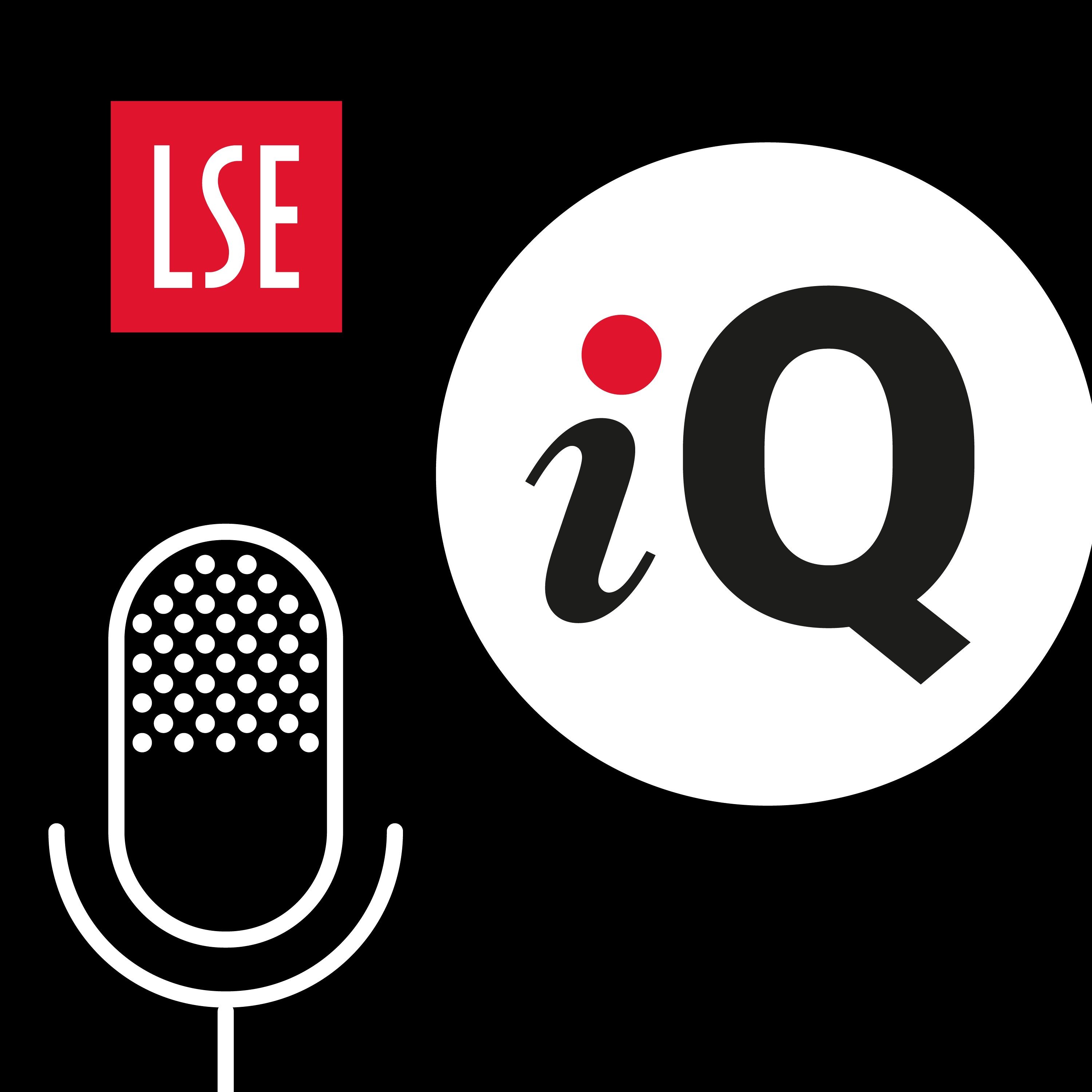
LSE PodcastsWhat’s it like to win a Nobel Prize?While there are always rumours about who might win a Nobel Prize every year, there is no short list for the globally revered academic awards. This means that winning one always comes as a complete surprise. In this episode of LSE iQ, we explore what it’s like to win the prestigious prize and how it changes your life.
The Nobel Prizes were established in 1900 at the behest of Alfred Nobel, a Swedish Chemist, Inventor and Industrialist, known in particular for his invention of dynamite. In his will he stated that his fortune was to be used to reward those wh...
2024-10-0130 min
LSE IQ | Intelligent questions with social science answersWhat’s it like to win a Nobel Prize?While there are always rumours about who might win a Nobel Prize every year, there is no short list for the globally revered academic awards. This means that winning one always comes as a complete surprise. In this episode of LSE iQ, we explore what it’s like to win the prestigious prize and how it changes your life.
The Nobel Prizes were established in 1900 at the behest of Alfred Nobel, a Swedish Chemist, Inventor and Industrialist, known in particular for his invention of dynamite. In his will he stated that his fortune was to be used to reward those wh...
2024-10-0130 min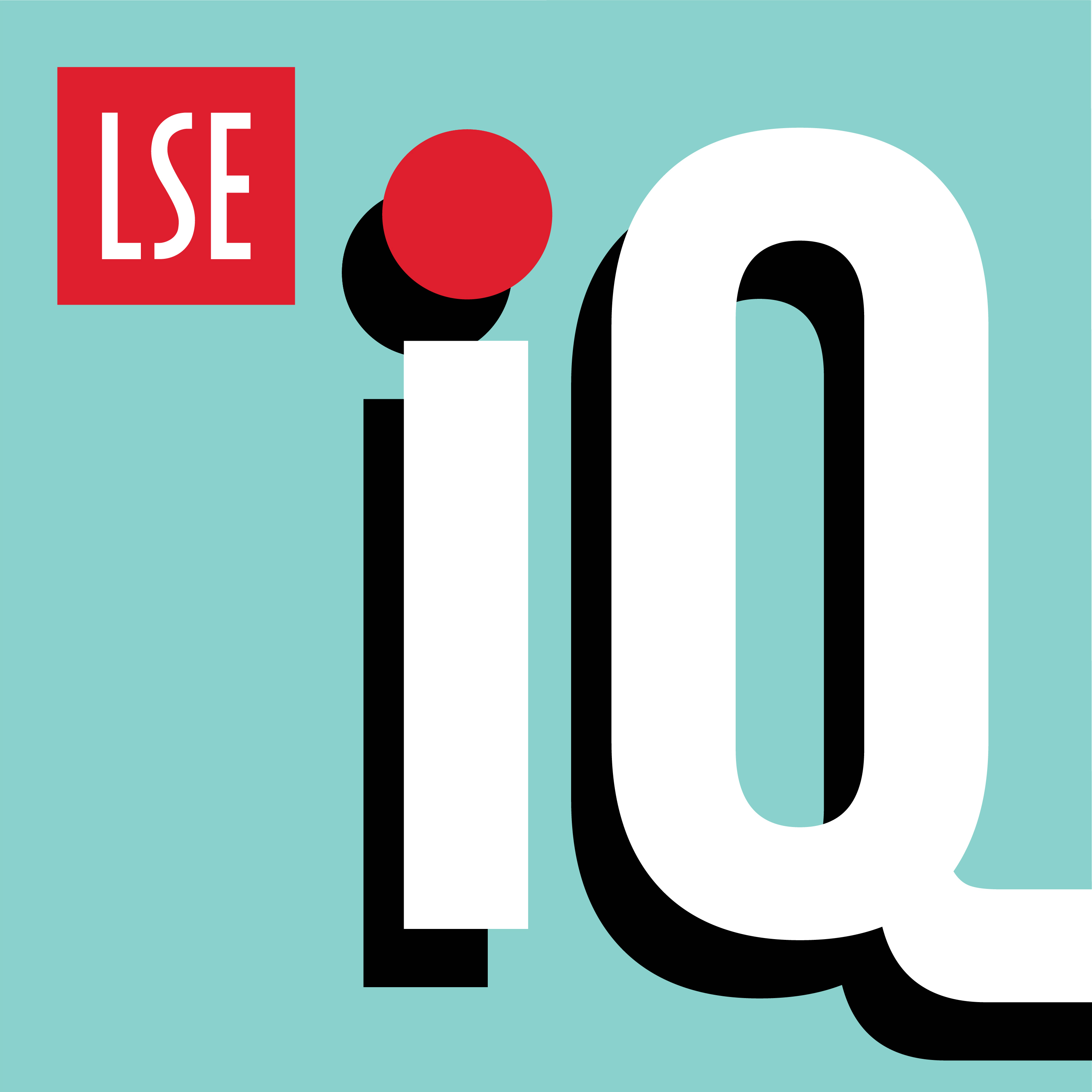
LSE IQ podcastWhat’s it like to win a Nobel Prize?Contributor(s): Professor Esther Duflo, Elizabeth Lewis Channon, Khari Motayne, Professor Sir Christopher Pissarides | While there are always rumours about who might win a Nobel Prize every year, there is no short list for the globally revered academic awards. This means that winning one always comes as a complete surprise. In this episode of LSE iQ, we explore what it’s like to win the prestigious prize and how it changes your life.
The Nobel Prizes were established in 1900 at the behest of Alfred Nobel, a Swedish Chemist, Inventor and Industrialist, known in particular for his invention of dynamite. In hi...
2024-10-0133 min
LSE IQWhat’s it like to win a Nobel Prize?Contributor(s): Professor Esther Duflo, Elizabeth Lewis Channon, Khari Motayne, Professor Sir Christopher Pissarides | While there are always rumours about who might win a Nobel Prize every year, there is no short list for the globally revered academic awards. This means that winning one always comes as a complete surprise. In this episode of LSE iQ, we explore what it’s like to win the prestigious prize and how it changes your life.
The Nobel Prizes were established in 1900 at the behest of Alfred Nobel, a Swedish Chemist, Inventor and Industrialist, known in particular for his invention of dynamite. In hi...
2024-10-0133 min
All items | LSE Public lectures and events | All media typesWhat’s it like to win a Nobel Prize?Contributor(s): Professor Esther Duflo, Elizabeth Lewis Channon, Khari Motayne, Professor Sir Christopher Pissarides | While there are always rumours about who might win a Nobel Prize every year, there is no short list for the globally revered academic awards. This means that winning one always comes as a complete surprise. In this episode of LSE iQ, we explore what it’s like to win the prestigious prize and how it changes your life.
The Nobel Prizes were established in 1900 at the behest of Alfred Nobel, a Swedish Chemist, Inventor and Industrialist, known in particular for his invention of dynamite. In hi...
2024-09-2133 min
All items | LSE Public lectures and events | AudioWhat’s it like to win a Nobel Prize?Contributor(s): Professor Esther Duflo, Elizabeth Lewis Channon, Khari Motayne, Professor Sir Christopher Pissarides | While there are always rumours about who might win a Nobel Prize every year, there is no short list for the globally revered academic awards. This means that winning one always comes as a complete surprise. In this episode of LSE iQ, we explore what it’s like to win the prestigious prize and how it changes your life.
The Nobel Prizes were established in 1900 at the behest of Alfred Nobel, a Swedish Chemist, Inventor and Industrialist, known in particular for his invention of dynamite. In hi...
2024-09-2133 min
All items | LSE Public lectures and events | Audio and pdfWhat’s it like to win a Nobel Prize?Contributor(s): Professor Esther Duflo, Elizabeth Lewis Channon, Khari Motayne, Professor Sir Christopher Pissarides | While there are always rumours about who might win a Nobel Prize every year, there is no short list for the globally revered academic awards. This means that winning one always comes as a complete surprise. In this episode of LSE iQ, we explore what it’s like to win the prestigious prize and how it changes your life.
The Nobel Prizes were established in 1900 at the behest of Alfred Nobel, a Swedish Chemist, Inventor and Industrialist, known in particular for his invention of dynamite. In hi...
2024-09-2133 min
Latest 300 | LSE Public lectures and events | VideoWhat’s it like to win a Nobel Prize?Contributor(s): Professor Esther Duflo, Elizabeth Lewis Channon, Khari Motayne, Professor Sir Christopher Pissarides | While there are always rumours about who might win a Nobel Prize every year, there is no short list for the globally revered academic awards. This means that winning one always comes as a complete surprise. In this episode of LSE iQ, we explore what it’s like to win the prestigious prize and how it changes your life.
The Nobel Prizes were established in 1900 at the behest of Alfred Nobel, a Swedish Chemist, Inventor and Industrialist, known in particular for his invention of dynamite. In hi...
2024-09-2133 min
Homebrewed ChristianitySir Christopher Pissarides: AI & Change in the Labour MarketI am thrilled about this episode in the ongoing Process This series on Artificial Intelligence. In this episode, my series co-host and author of God-Like: A 500-Year History of Artificial Intelligence in Myths, Machines, Monsters, Kester Brewin, is joined by Nobel Prize-winning economist Professor Sir Christopher Pissarides. Reflecting on his career and insights, Pissarides discusses the historical and future impacts of technological changes on labor markets. He offers an optimistic yet cautious view on AI, emphasizing the importance of communication, strategic regulation, and the complementary use of AI to enhance human work. The conversation also explores the role of stake...
2024-08-2944 min
Work FORCEIs Technology Stealing Your Job?In this episode of Work FORCE, host Dr. Grace Lordan explores the evolving landscape of artificial intelligence (AI) and its impact on employment. With a diverse panel of experts, Dr. Lordan delves into the complexities of AI integration and its implications for the future of work. Grace navigates the complex intersection of technology and creativity, shedding light on the transformative potential and ethical considerations of AI adoption.Listen, learn, and let's transform the workplace together. Subscribe, rate, and review Work FORCE on your favourite podcast platform and join Dr. Grace Lordan in dismantling the "bullstuff" that holds...
2024-03-2642 min
LSE IQ podcastIs AI coming for our jobs?Contributor(s): Professor Sir Christopher Pissarides, Professor Charlie Beckett, Dr Giulia Gentile | We’ll hear about the introduction of Artificial Intelligence in the courtroom, and what might happen if robots take over the roles of judges. Experts will explore how journalism and other professional fields could be affected by the AI revolution. They will discuss what individuals can do to prepare, and the role of governments and businesses in addressing practical and ethical concerns about the technology.
Maayan Arad talks to: Professor Sir Christopher Pissarides, LSE professor of economics and Nobel Prize winner; Professor Charlie Beckett, LSE media professor and di...
2023-09-0730 min
LSE IQIs AI coming for our jobs?Contributor(s): Professor Sir Christopher Pissarides, Professor Charlie Beckett, Dr Giulia Gentile | We’ll hear about the introduction of Artificial Intelligence in the courtroom, and what might happen if robots take over the roles of judges. Experts will explore how journalism and other professional fields could be affected by the AI revolution. They will discuss what individuals can do to prepare, and the role of governments and businesses in addressing practical and ethical concerns about the technology.
Maayan Arad talks to: Professor Sir Christopher Pissarides, LSE professor of economics and Nobel Prize winner; Professor Charlie Beckett, LSE media professor and di...
2023-09-0730 min
Latest 300 | LSE Public lectures and events | VideoIs AI coming for our jobs?Contributor(s): Professor Sir Christopher Pissarides, Professor Charlie Beckett, Dr Giulia Gentile | We’ll hear about the introduction of Artificial Intelligence in the courtroom, and what might happen if robots take over the roles of judges. Experts will explore how journalism and other professional fields could be affected by the AI revolution. They will discuss what individuals can do to prepare, and the role of governments and businesses in addressing practical and ethical concerns about the technology.
Maayan Arad talks to: Professor Sir Christopher Pissarides, LSE professor of economics and Nobel Prize winner; Professor Charlie Beckett, LSE media professor and di...
2023-08-2030 min
Skillset and matchEpisode 13: Nobel laureate economist Sir Christopher Pissarides on work in the digital eraIn an exclusive wide-ranging interview to Cedefop's Skillset and match podcast, Nobel laureate economist, Sir Christopher Pissarides, shares his optimistic views on the future of work, the impact of automation on jobs, Europe's dedication to lifelong learning, the results of the 2nd European skills and jobs survey, and more. He urges workers to embrace the latest technological revolution and calls for governments to take action against the inequalities caused by the digital technologies. Sir Christopher, who is currently leading a review on the future of work in the UK, was a keynote speaker at Cedefop’s recent high-level conference on...
2023-01-1236 min
2050 Investors (en français) — Les tendances économiques et de marché de demain, au regard des objectifs de neutralité carbone de 2050Survivre au darwinisme professionnel : Adaptation et dynamique de l’emploi (avec Sir Christopher Pissarides, Prix Nobel d’économie 2010)Quel est l’impact de l’évolution technologique sur l’emploi ? Les nouvelles technologies sont de plus en plus présentes dans notre quotidien professionnel, et nous devons impérativement adapter nos compétences à cette évolution. Cette aptitude décisive a un nom : le QA, ou Quotient d’Adaptabilité. Dans cet épisode, Kokou Agbo-Bloua explore la nécessité d'adaptation dans un monde en mutation. À travers des exemples concrets, Kokou et son invité, le professeur Sir Christopher Pissarides, lauréat du prix Nobel d'économie en 2010, analysent les défis et opportunités pour les travailleurs face à l'autom...
2022-10-1322 min
2050 Investors — Economic and markets megatrends, ahead of 2050’s global sustainability targetsSurviving Job Darwinism: Adaptability in Today's Job Market (ft. Sir Christopher Pissarides, 2010 Nobel Prize in Economics)What is the impact of technological change on employment? When it comes to skills and jobs, adaptability quotient (AQ) can have a massive impact on your career, in comparison to intellectual (IQ) and emotional (EQ) quotients. Especially as workers must change and evolve to keep pace with technologies. So, how individuals make their way through employment opportunities? In this new episode of 2050 Investors, Kokou Agbo-Bloua investigates our ability to survive in a labour market that is poised to be revolutionized by technology. Key themes such as the evolution of job sectors, the role of government p...
2021-11-1824 min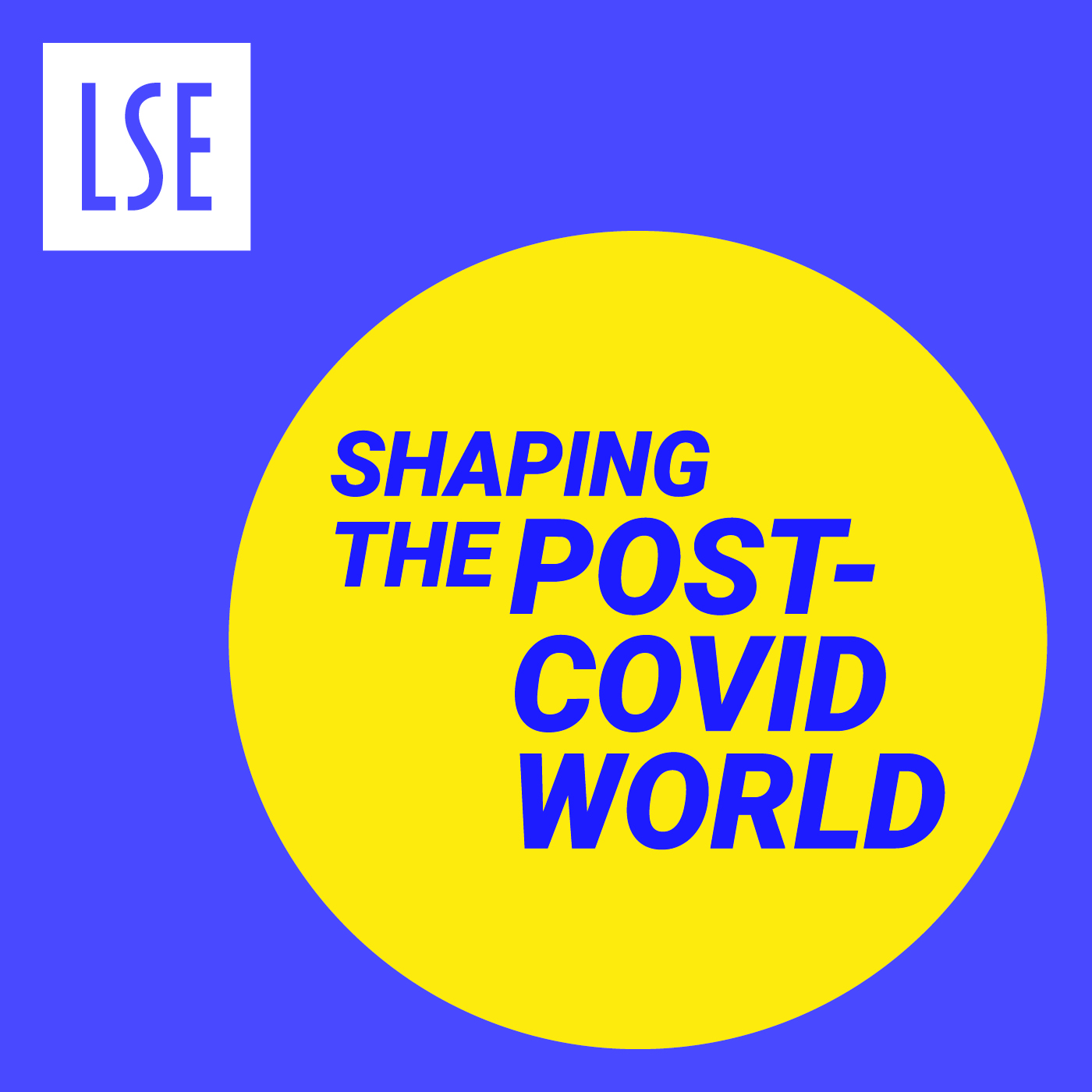
Shaping the Post-COVID WorldGreece and the Euro: from crisis to recoveryContributor(s): Professor George Alogoskoufis, Professor Helen Louri-Dendrinou, Professor Lucas Papademos, Professor Sir Christopher Pissarides | What are the pre-conditions – economic, political and institutional - for a sustained recovery of the Greek economy? What's scope is there for recovery, which priorities need to be set, and what are the prospects for their attainment?
2021-11-031h 32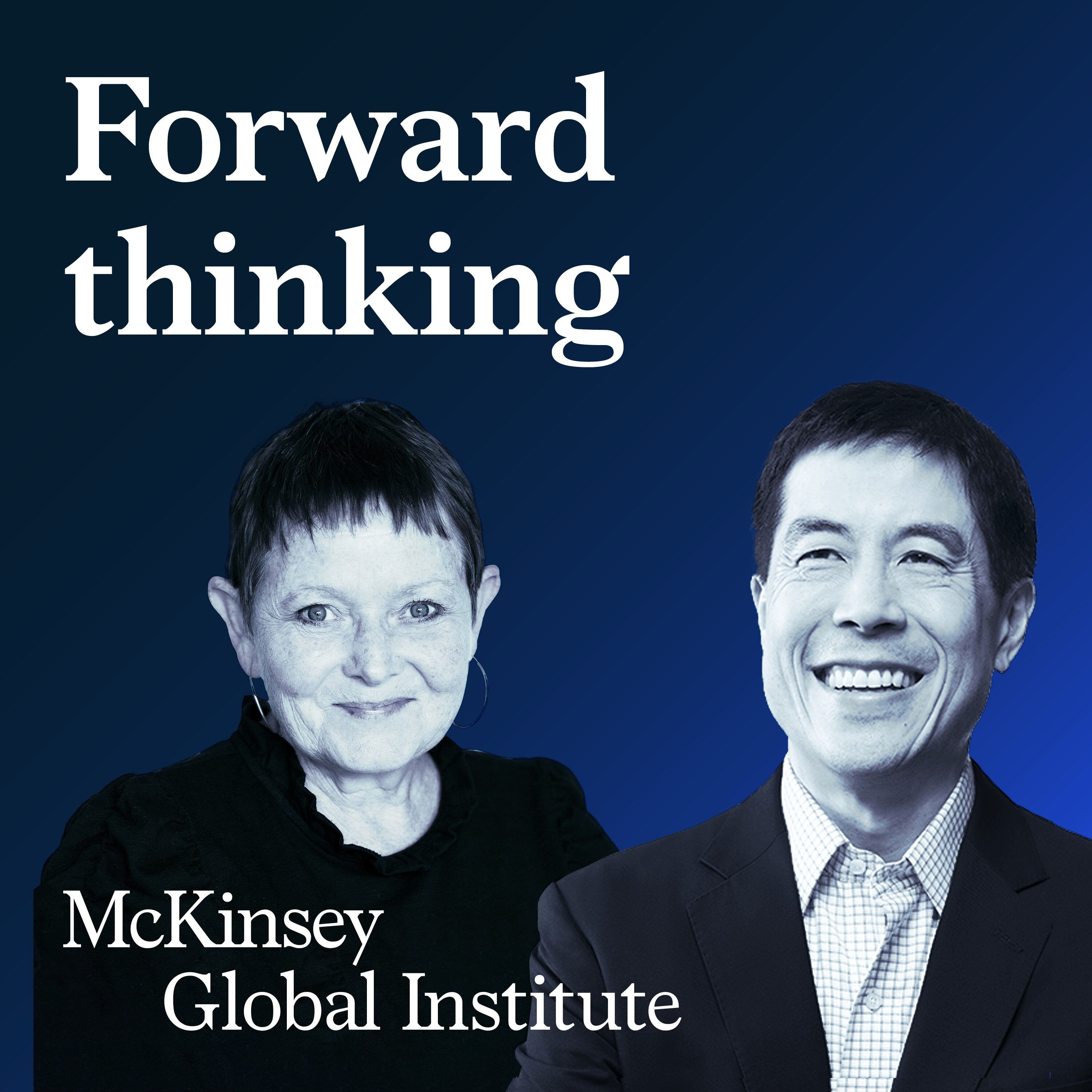
Forward ThinkingForward Thinking on Unemployment with Sir Christopher PissaridesMillions of people have lost their jobs over the past year, and the jobs that are going to be available coming out of the pandemic might be really different from those that were available even a few years ago. Just think about some of the jobs that employed a lot of people before: in-person services like personal care, dining, travel, and leisure. All those things have been decimated by the impact of COVID. How many of these are coming back? How do we help unemployed workers find new jobs and new career paths? What support do they need along the...
2021-05-1229 min
Forward ThinkingIntroducing “Forward Thinking” from the McKinsey Global Institute Read more > Listen to the podcast (duration: 00:90) > Forward Thinking is a new podcast series hosted by Michael Chui and Anna Bernasek. We want to inform and provoke your thinking by interviewing names you may know—like Nobel prizewinners Jennifer Doudna and Sir Christopher Pissarides—and by introducing up-and-comers you should know. We ask experts to tell us about the key changes they see that will shape our lives, our businesses, and our societies…Including what comes next after COVID-19, global health, climate change, the future of work, diversity, inclusion, inequality, and cutting-edge technology like the bio revolution and artificia...
2021-05-0501 min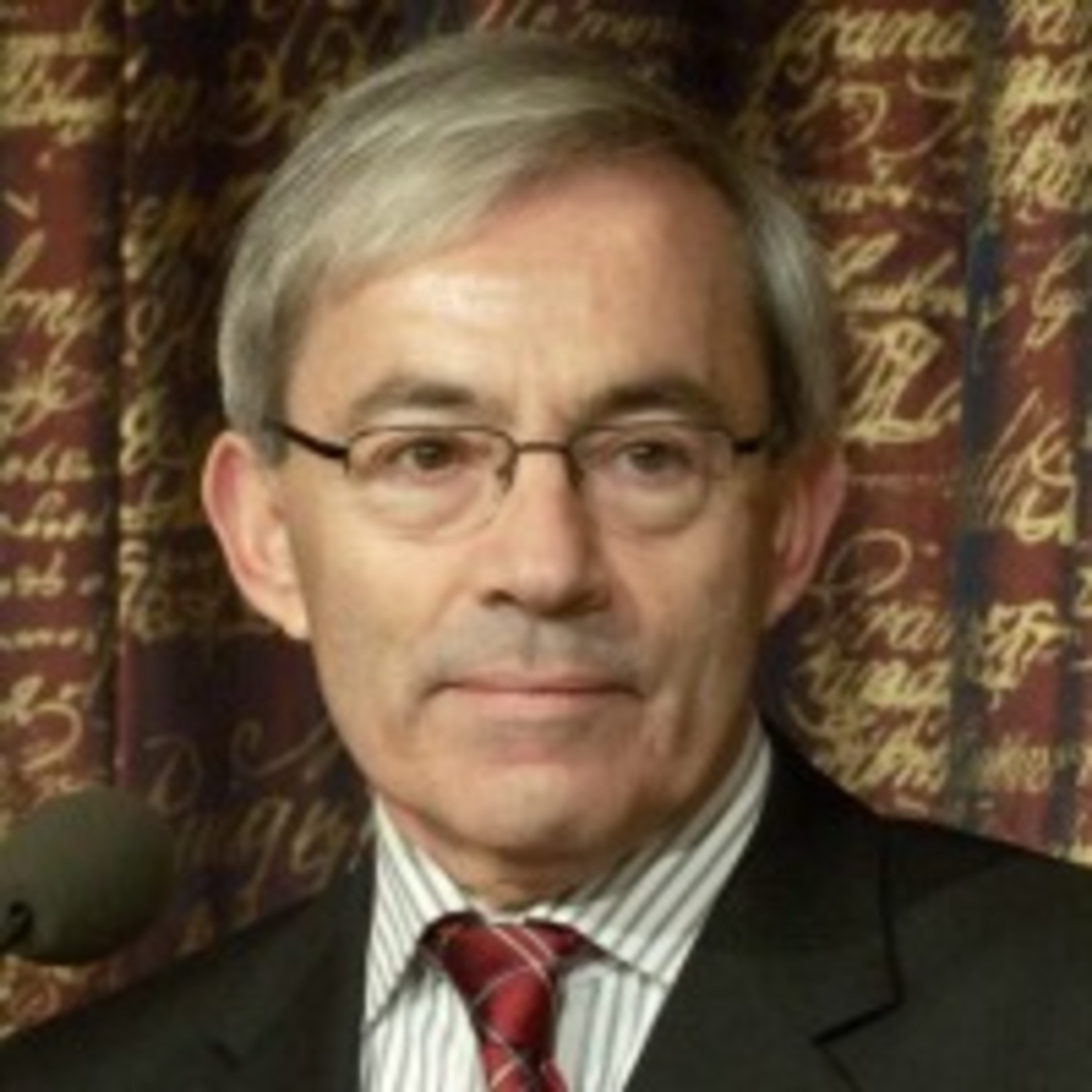
The Beverage Report PodcastAn interview with Professor Sir Christopher Pissarides, Nobel Prize-winning EconomistChristopher Pissarides was awarded the Nobel Memorial Prize in Economic Sciences in 2010, jointly with Peter Diamond from Massachusetts Institute of Technology and Dale Mortensen from Northwestern University for their work on the economics of unemployment, especially job flows and the effects of being out of work.
10 years on, Matthew Bradbury interviews Christopher Pissarides about his Nobel Prize, life at LSE before and after this event, and his work with the Greek government, defining Greek economic policy going forwards.
2020-12-1152 min
Autumn 2013 | Public lectures and events | Audio and pdfIs Europe Working? - 18:30 SessionContributor(s): Professor Sir Christopher Pissarides | The government announced earlier this year that LSE will be one of 12 universities to have the prestigious title of Regius Professor bestowed upon it by The Queen to mark the Diamond Jubilee, with the creation of a new Regius Professor in Economics. A Regius Professorship is a rare privilege, with only two created in the past century; it is regarded as a reflection of the exceptionally high quality of teaching and research at an institution. It is the first Regius Professorship to have been awarded in the field of economics. Christopher Pissarides has been...
2013-12-121h 02
Autumn 2013 | Public lectures and events | VideoIs Europe Working? - 18:30 SessionContributor(s): Professor Sir Christopher Pissarides | The government announced earlier this year that LSE will be one of 12 universities to have the prestigious title of Regius Professor bestowed upon it by The Queen to mark the Diamond Jubilee, with the creation of a new Regius Professor in Economics. A Regius Professorship is a rare privilege, with only two created in the past century; it is regarded as a reflection of the exceptionally high quality of teaching and research at an institution. It is the first Regius Professorship to have been awarded in the field of economics. Christopher Pissarides has been...
2013-12-121h 02
Summer 2011 | Public lectures and events | Audio and pdfPublic Policy, Equity and Growth: a panel discussionContributor(s): Professor Sir Tony Atkinson, Professor Peter Diamond, Sir Nicholas Macpherson, Professor Sir James Mirrlees, Professor Lord Stern | This event is part of a celebration of 25 years on from the LSE project on Taxation, Income Distribution and Incentives run in STICERD by Sir Tony Atkinson, Mervyn King and Professor Lord Stern. The panel brings together a distinguished panel of experts to discuss what we have learned in the intervening period about how public policy can best be structured to support equity and growth. Professor Sir Tony Atkinson, is centennial professor in the Department of Economics at LSE. Peter A...
2011-05-191h 26
Summer 2011 | Public lectures and events | VideoPublic Policy, Equity and Growth: a panel discussionContributor(s): Professor Sir Tony Atkinson, Professor Peter Diamond, Sir Nicholas Macpherson, Professor Sir James Mirrlees, Professor Lord Stern | This event is part of a celebration of 25 years on from the LSE project on Taxation, Income Distribution and Incentives run in STICERD by Sir Tony Atkinson, Mervyn King and Professor Lord Stern. The panel brings together a distinguished panel of experts to discuss what we have learned in the intervening period about how public policy can best be structured to support equity and growth. Professor Sir Tony Atkinson, is centennial professor in the Department of Economics at LSE. Peter A...
2011-05-191h 26
Summer 2011 | Public lectures and events | VideoPublic Policy, Equity and Growth: a panel discussionContributor(s): Professor Sir Tony Atkinson, Professor Peter Diamond, Sir Nicholas Macpherson, Professor Sir James Mirrlees, Professor Lord Stern | This event is part of a celebration of 25 years on from the LSE project on Taxation, Income Distribution and Incentives run in STICERD by Sir Tony Atkinson, Mervyn King and Professor Lord Stern. The panel brings together a distinguished panel of experts to discuss what we have learned in the intervening period about how public policy can best be structured to support equity and growth. Professor Sir Tony Atkinson, is centennial professor in the Department of Economics at LSE. Peter A...
2011-05-191h 26
Summer 2011 | Public lectures and events | Audio and pdfPublic Policy, Equity and Growth: a panel discussionContributor(s): Professor Sir Tony Atkinson, Professor Peter Diamond, Sir Nicholas Macpherson, Professor Sir James Mirrlees, Professor Lord Stern | This event is part of a celebration of 25 years on from the LSE project on Taxation, Income Distribution and Incentives run in STICERD by Sir Tony Atkinson, Mervyn King and Professor Lord Stern. The panel brings together a distinguished panel of experts to discuss what we have learned in the intervening period about how public policy can best be structured to support equity and growth. Professor Sir Tony Atkinson, is centennial professor in the Department of Economics at LSE. Peter A...
2011-05-191h 26